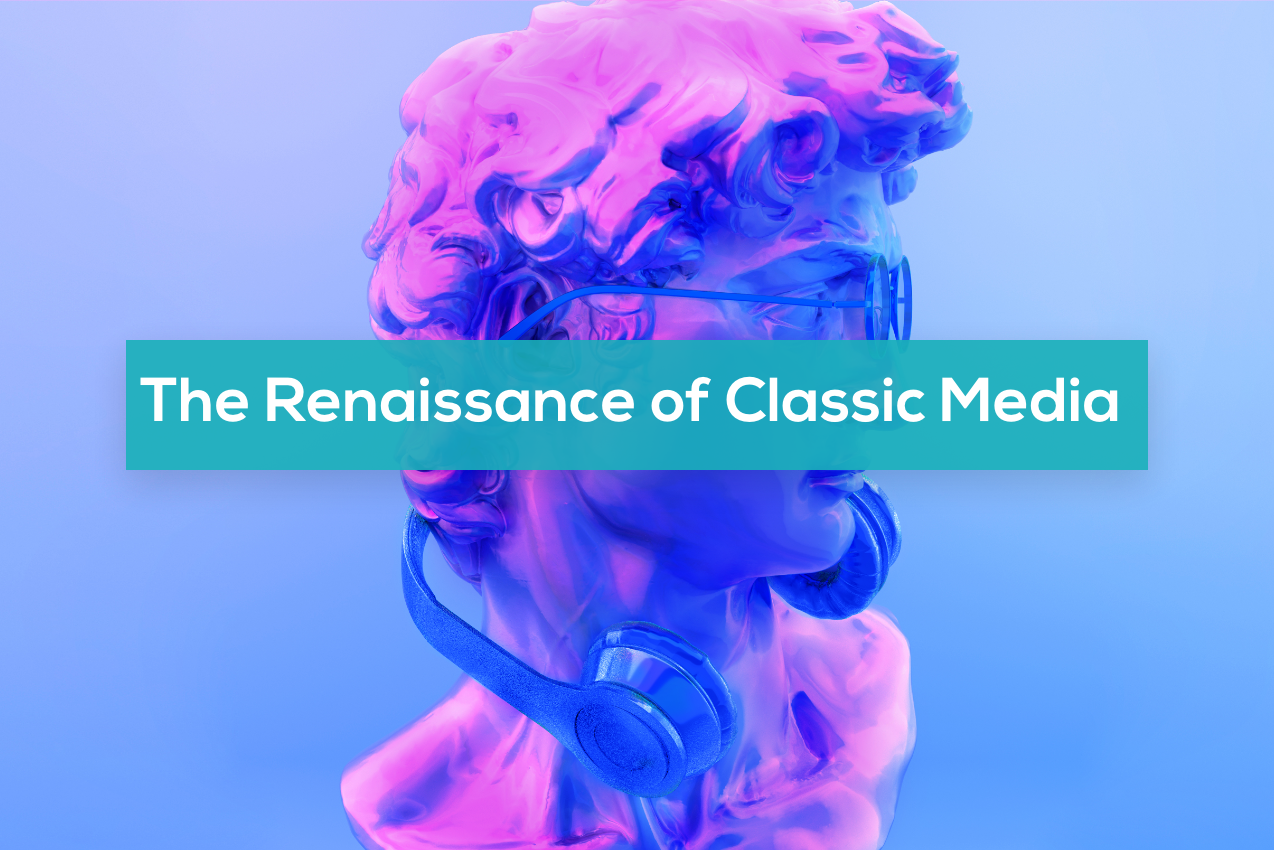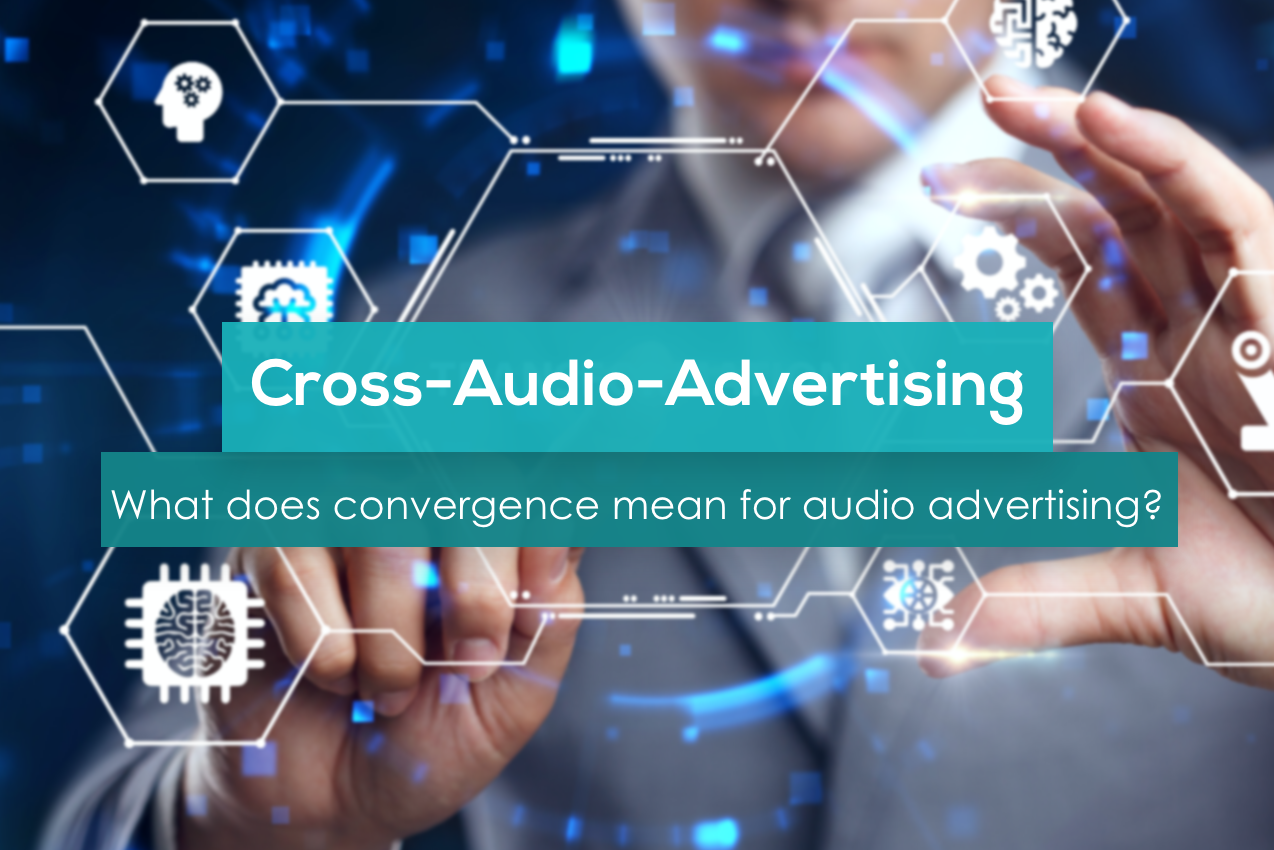© aprile consulting GmbH/stock.adobe.com/putilov_denis/#478957572
The challenges to be faced in the future are obvious: Companies need to be ever more efficient to keep at least a step ahead of the competition. The audio business is no exception. But what do they need to do? Nico Aprile, Managing Director of aprile consulting and co-founder of amily, explains what convergence means and why it is becoming ever more important to the media in-dustry.
Cross Media Advertising is, of course, nothing new. Advertising campaigns have always been and will be planned and carried out across several media platforms. Advertisers and advertising agen-cies have always relied on being able to spread their advertising messages on multiple channels to increase their coverage and audience or optimally combine the respective advantages and target groups. And planning, organizing, and carrying out these campaigns has always been complex and time-consuming. Because, as a rule, TV and radio spots, print and online advertising, actually, every channel in the media mix has to be booked and billed separately.
Hence, the trend to media convergence, specifically, the increasing fusion of linear and digital channels, has emerged right on time: TV series are continued on the internet, movies wind up as video games, newspapers and radio stations run additional online portals, produce podcasts, web radio and/or streaming platforms. This is convergence for advertisers and advertising agencies: fewer contacts for more distribution channels and coverage mean less work.
Provided advertising management is also provided from a single source. And that is precisely what the market has come to expect: namely, differentiated, flexible and dynamic multi-channel cam-paigns, controlled in an integrated manner by comprehensive, convergent advertising manage-ment capable of serving all channels at the same time.
Convergence as a competitive advantage in the audio industry
As the advertising industry sees it, FM radio stations which still have no online audio offerings (aka IP audio or audio streaming) need to “catch up to the times” (and upgrade) as quickly as possible. Because convergence, the combination of radio and online audio, promises the greatest campaign success and thus the best chance of keeping a market position when competing with other types of media, specifically with the purely domineering digital giants of Google, Apple, Facebook and Amazon (referred to as GAFAs).
Online audio still seems to be on an upward trend whereby rising user numbers are still not reflected in advertising revenue. Sales are still below expectation. Radio still makes up the definite lion’s share of audio advertising sales. Consequently, unlike others, I do not believe that online audio will play a leading role anytime soon. I am convinced radio advertising will continue to be the main source of income for some time to come.
In addition to their standard radio programs, radio publishers, however, should absolutely use the current advantage to put together their own attractive online offerings and to market them. Most of them already are. The prerequisite is that cross channel campaigns can be organized and mapped at the same time using convergent and efficient advertising management (a system). And this again is rarely the case. The word “system” refers to the process as well as the underlying soft-ware solutions.
Different processes combined in just one software system
The mapping and management of advertising campaigns in linear radio, specifically in the one-to-many business, is different than the handling and billing of advertising in the online audio segment with its digital one-to-one approach.
It is thus all the more important to combine these two worlds, meaning being able to offer radio and online audio advertising at the same time from one system. Those who continue to wind up linear and digital advertising separately are expecting their customers to put up with different terms, discounts and billing forms.
Even transparency suffers. Because marketers cannot be sure that billing and distribution to individual clients across multiple channels is always correctly calculated.
Not least of all, it must be able to be verified that the service which a customer purchased is actually provided in the way it was commissioned. This is virtually not feasible with insular processes lacking harmony.
Convergence provides a future for the processes of audio advertising
Advertisers and media agencies want extensive coverage which can be managed efficiently and effectively. The greatest possible campaign flexibility that corresponds to the changing conditions, e.g., weather conditions, inventory, etc. must also be factored in. Yet just as important: the great-est possible transparency and least amount of effort possible.
I think the calls for flexibility, response time and efficiency will continue to increase in the future. That is why advertising management that is all-encompassing, functions reliably and is convergent is imperative as the decisive factor in competition for audio publishers, whether radio and/or online, as well as for marketers.
Yours, Nico Aprile
Read more about our authors Authors.
You might be interested in these posts



